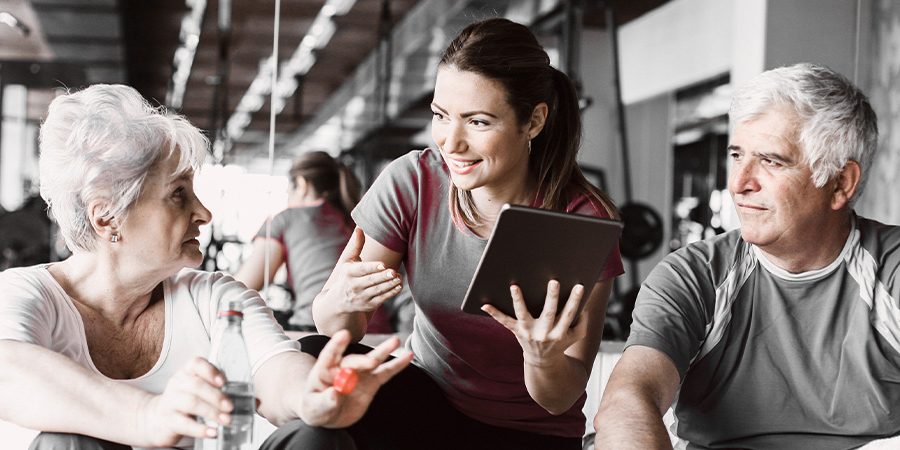As fitness professionals, we are no strangers to the importance of growth, adaptation, and progress. Our field demands continuous learning and improvement, not only for ourselves but also for the clients we serve. In this article, we will explore the scientific evidence behind the inclination for continuous improvement and its impact on personal and professional development. By understanding the research and studies that support this concept, we can enhance our own growth mindset and drive success in our fitness careers.
Neuroplasticity
Research shows that our brains possess a remarkable capacity for change, known as neuroplasticity. A study conducted by Doidge (2008) highlights the brain’s ability to form new connections and reorganise existing ones based on learning experiences. By embracing continuous improvement, we stimulate neuroplasticity, leading to enhanced cognitive function, increased learning capacity, and improved problem-solving skills (Draganski et al., 2004).
Dweck’s Mindset Theory
Psychologist Carol Dweck’s groundbreaking work on mindset theory reveals the power of a growth mindset. Individuals with a growth mindset believe that abilities and intelligence can be developed through effort and dedication. In contrast, those with a fixed mindset believe that qualities are fixed and unchangeable. Numerous studies, including those by Blackwell et al. (2007) and Yeager et al. (2019), demonstrate that individuals with a growth mindset are more likely to embrace challenges, persist in the face of obstacles, and achieve higher levels of success.
The Learning Zone
Embracing continuous improvement often requires stepping outside of our comfort zone and entering the learning zone. A study by Worden et al. (2011) suggests that spending time in the learning zone stimulates the brain’s ability to form new neural connections and promotes long-term cognitive growth. By actively acquiring new skills, knowledge, and experiences, we strengthen neural pathways and increase competence, adaptability, and creativity.
The Kaisen Philosophy
Small Steps, Big Results. The Kaisen philosophy, rooted in continuous improvement, emphasises making small, incremental changes over time. Research by Hasan et al. (2017) supports the effectiveness of Kaisen in improving productivity, employee satisfaction, and overall organisational success. By implementing the principles of Kaisen in our own professional development, we can optimise our progress and achieve greater success.
The Power of Feedback
Seeking feedback is a vital component of continuous improvement. Research by Kornell and Bjork (2007) demonstrates that receiving constructive feedback activates brain regions associated with learning and growth, leading to improved performance. Feedback provides valuable information about areas that require improvement, highlights strengths, and fosters a clearer understanding of our goals. By embracing feedback, we accelerate our progress and achieve higher levels of success.
The inclination for continuous improvement is supported by a wealth of scientific evidence. The concept of neuroplasticity highlights our brain’s capacity for change, while Dweck’s mindset theory emphasises the power of a growth mindset. Stepping outside of our comfort zone and entering the learning zone fosters cognitive growth, while the Kaisen philosophy enables small but impactful improvements. Finally, seeking feedback activates our brain’s learning centres and propels us toward success.

As fitness professionals, our commitment to continuous improvement positions us for long-term growth and achievement. By understanding the research and studies behind this concept, we can embrace a growth mindset, step into the learning zone, implement Kaisen principles, and seek feedback to optimise our personal and professional development. Let’s embrace the journey of continuous improvement and unlock our true potential.
References:
- Blackwell, L. S., Trzesniewski, K. H., & Dweck, C. S. (2007). Implicit theories of intelligence predict achievement across an adolescent transition: A longitudinal study and an intervention. Child development, 78(1), 246-263. https://srcd.onlinelibrary.wiley.com/doi/abs/10.1111/j.1467-8624.2007.00995.x
- Doidge, N. (2008). The brain that changes itself: Stories of personal triumph from the frontiers of brain science. Penguin. https://www.brainmaster.com/software/pubs/brain/contrib/The%20Brain%20That%20Changes%20Itself.pdf
- Draganski, B., Gaser, C., Busch, V., Schuierer, G., Bogdahn, U., & May, A. (2004). Neuroplasticity: Changes in grey matter induced by training. Nature, 427(6972), 311-312. https://pubmed.ncbi.nlm.nih.gov/14737157/
- Worden, J. M., Hinton, C., & Fischer, K. W. (2011). What Does the Brain Have to Do with Learning? Phi Delta Kappan, 92(8), 8–13. https://doi.org/10.1177/003172171109200803
- Kornell, N., & Bjork, R. A. (2007). The promise and perils of self-regulated study. Psychonomic Bulletin & Review, 14(2), 219-224. https://link.springer.com/article/10.3758/bf03194055
- Yeager, D. S., Hanselman, P., Walton, G. M., Murray, J. S., Crosnoe, R., Muller, C., … & Dweck, C. S. (2019). A national experiment reveals where a growth mindset improves achievement. Nature, 573(7774), 364-369. https://www.nature.com/articles/s41586-019-1466-y
Progress Your Career & Move Into Management
Unlock your potential as a fitness professional and take your career to new heights with a leisure management course. Imagine expanding your skill set and gaining expertise in managing fitness facilities, designing wellness programmes, and leading teams to success. This course offers a unique opportunity to blend your passion for fitness with valuable managerial skills. Learn the art of creating employee wellness initiatives, optimising operational efficiency, and enhancing customer experiences. Take the leap towards becoming a well-rounded fitness professional and open doors to exciting career opportunities in the thriving leisure industry. Enrol on a leisure management course today and transform your passion into a dynamic career!
